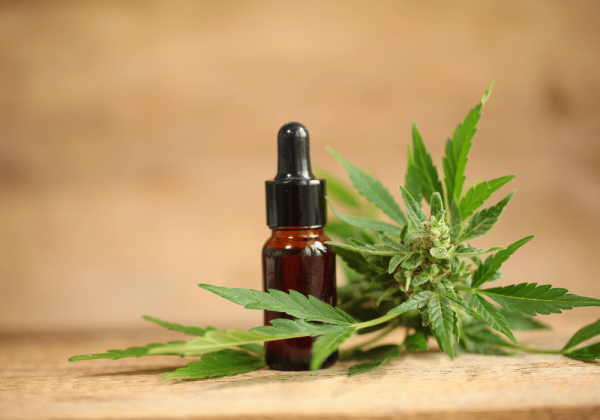Cannabis has long been stigmatized, but recent years have shed light on its remarkable potential to enhance overall wellness. From aiding mental health to improving sleep, cannabis is carving its place in holistic health routines. If you’re a wellness enthusiast, cannabis user, or health-conscious individual curious about its benefits, this blog explores the science behind cannabis and how it can be a powerful tool for physical and mental well-being.
 The Science Behind Cannabis and Wellness
The Science Behind Cannabis and Wellness
One of the key ways cannabis affects wellness lies in its interaction with the endocannabinoid system (ECS). This intricate cell-signalling system plays a crucial role in maintaining homeostasis—your body’s internal balance.
Cannabis is packed with compounds like THC (tetrahydrocannabinol) and CBD (cannabidiol), known as cannabinoids. When consumed, these cannabinoids interact with your ECS receptors to produce a variety of effects, such as reduced pain, enhanced relaxation, and even mood stabilization.
- THC is known for its psychoactive effects, commonly associated with the euphoric “high.” Beyond recreation, THC can help with pain relief and appetite stimulation.
- CBD, on the other hand, is non-psychoactive and renowned for its calming and anti-inflammatory properties. It’s the go-to option for those seeking health benefits without the buzz.
By modulating physiological processes such as pain perception, sleep, and inflammatory responses, cannabis offers a holistic approach to health and wellness.
Mental Health Benefits
1. Relief from Anxiety and Stress
High-stress levels are part and parcel of modern life, leaving many people seeking ways to unwind. Cannabis, particularly CBD-rich products, has been shown to reduce levels of cortisol, the stress hormone.
Studies suggest that CBD promotes relaxation, while smaller doses of THC may also alleviate stress by triggering the brain to produce dopamine, the “feel-good” neurotransmitter. Microdosing THC can be a great place to start if you’re prone to stress but wary of getting high.
2. Easing Depression and Mood Disorders
Mental health researchers have begun exploring cannabis’ impact on conditions like depression. CBD, in particular, has demonstrated promise as a natural alternative to antidepressants due to its ability to interact with serotonin receptors. These receptors regulate mood and happiness.
For individuals struggling with mood swings or seasonal affective disorder (SAD), adding cannabis to a wellness routine could help smooth emotional turbulence while supporting overall mental balance.
3. Improved Focus and Flow
Contrary to the stereotype of cannabis-inducing lethargy, certain strains with higher levels of limonene or pinene terpenes have been reported to help with focus and creativity. Strains like Sour Diesel and Super Lemon Haze could support a productive “flow state” ideal for tackling creative projects or meditative practices.
Physical Health Benefits
1. Pain Management
Cannabis is widely recognized for its role in treating chronic pain. Conditions such as arthritis, fibromyalgia, and back pain respond well to both THC and CBD. By interacting with ECS receptors, cannabinoids serve as natural analgesics that can reduce nerve pain, muscle spasms, and inflammation without the harsh side effects of traditional pharmaceuticals.
Products like CBD creams and transdermal patches can provide localized relief, perfect for post-workout muscle soreness.
2. Better Sleep Quality
Struggling to get a good night’s sleep? Cannabis can also be a powerful ally for those battling insomnia or difficulty unwinding at night. THC can shorten the time it takes to fall asleep, while CBD helps regulate your sleep cycle—and perhaps even curb nightmares.
Indica-dominant strains like Granddaddy Purple or Northern Lights have sedative properties that help relax both your mind and body, allowing for restorative rest.
3. Anti-Inflammatory Properties
Inflammation is a common root cause of numerous chronic diseases, including autoimmune disorders and heart disease. Both THC and CBD exhibit anti-inflammatory effects that help mitigate conditions such as irritable bowel syndrome (IBS) or multiple sclerosis.
If you’re looking for a natural way to address inflammation-related discomfort, cannabis could be a game-changer.
How to Incorporate Cannabis into Your Wellness Routine
Curious about adding cannabis to your wellness plan? Here are some tips for doing it safely and effectively.
 1. Start Low, Go Slow
1. Start Low, Go Slow
Begin with low doses, especially if you’re new to cannabis. Products like CBD oils or microdose edibles offer an easy way to experiment without the risk of overwhelming effects.
2. Choose the Right Products
Not all cannabis products are created equal. Ask yourself—are you looking for relaxation, energy, or pain relief? Your answer will determine whether you opt for a high-THC strain, CBD isolate, or hybrid product. Vape pens, tinctures, topical creams, and capsules are just a few ways to tailor your experience.
3. Mind Your Timing
Certain strains are better suited for different times of the day. For example, sativa strains work well in the morning for a focus boost, while indica strains are perfect for winding down in the evening.
4. Pair with Intentional Habits
Combine cannabis with activities such as yoga, meditation, or journaling to deepen its impact. This combination can unlock the full potential of cannabis as a tool for inner wellness.
5. Know Your Source
Choose products from licensed dispensaries or trusted brands to ensure quality and compliance. Opt for organic or lab-tested options to avoid harmful additives or pesticides.
Legal Considerations
Before incorporating cannabis into your routine, it’s essential to understand its legal status in your jurisdiction.
- Canada has legalized both medical and recreational cannabis nationwide, making it easily accessible.
- The United States has varying laws by state—while some states allow recreational use, others only permit medical cannabis under specific conditions.
- Globally, acceptance of cannabis is growing, but strict regulations still exist in many countries.
Stay informed, and always purchase cannabis from licensed retailers to ensure safety and compliance with local laws.
Cannabis is no longer just a recreational pastime—it’s a wellness tool reshaping how we approach health. With ongoing research and increasing societal acceptance, the future of cannabis looks promising. From personalized strains to AI-driven health solutions, innovation in cannabis technology will only continue. Wellness revolves around balance, and cannabis provides a natural avenue for achieving it, whether it’s calming the mind, managing chronic pain, or optimizing daily performance. Are you ready to elevate your wellness game? Start exploring the world of cannabis with mindfulness and intention, and discover how it can transform your approach to health.

